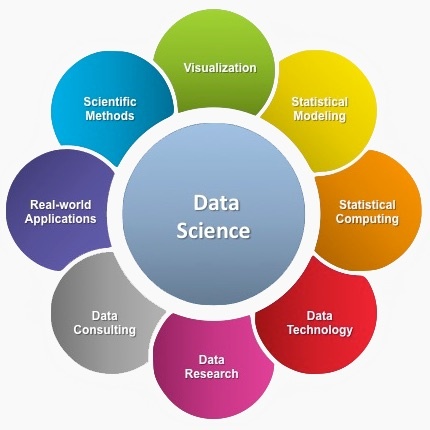

Sometimes organizations struggle to turn even small data into useful information. It becomes a very hectic process for organizations to manage their data in a systematic way. Sometimes they are not able to collect, analyze and manage data as they are busy with other tasks also. Data analysis is a significant part of any organization. Organizations have to maintain proper records and data maintenance in order to take quick and effective decisions for the betterment of their business.
This is when data analysis comes into the picture. Companies prefer to hire a data analyst or outsource data analytics to maintain their data and organize the data in such a way that it turns into useful information for taking effective decisions.
Data analysis is the process of collecting, inspecting, and evaluating data in order to discover meaningful information and conclusion for effective decision making. Data analysis is a key to gain the insight that drives better business decisions. In simple words, data analysis is interpreting data into meaningful information. There are different types of data such as quantitative and qualitative data which a data analyst uses for analyzing. Data analysts gather data from different sources and then review and analyze data to interpret meaningful information and conclusion.
Mainly, there are two types of data that is used in data analysis i.e.
Quantitative data: Quantitative data is the data that can be measured or written down in numerical form. For example height, size, length, price, area, volume, humidity, temperature etc.
Qualitative data: It deals with the information, description characteristics etc. that can be observed but cannot be measured. For example color, taste, smell, texture, etc.
Before analyzing, the data is collected from various sources using different methods or techniques. Some of the methods of data collection are as follows.
Primary data: It is the data that is collected by the researcher or analyst for the first time. This data is collected by the researcher himself. The sources of collecting primary data are questionnaires, survey, interview, and observation.
Secondary data: It is the data which already exists and the researcher or analyst use this data for data analysis. The sources of collecting secondary data are reports, journals, news, books, magazines etc.
Data analyst performs a crucial job in data management. A data analyst should possess some key skills like knowledge of programming language, qualitative and quantitative skills, data interpretation, should have an understanding of business and its outcomes.
Data analysis is a crucial task as it helps in decision making and forecasting the market growth of a company. Data analytics is become a hectic and tiresome process for businesses as it is a lengthy process and require full attention and knowledge about a particular field. That is the reason that companies prefer to use data analytics to analyze a large amount of data. Data analysts use various qualitative and quantitative methods to gain market and customers insight.
Today, most of the organizations are recognizing the advantages and profitability of outsourcing data analytics services. Sometimes lack of skilled human resources and expertise drives the companies towards outsourcing data analytics. The advantages of data analytical outsourcing encourage organizations to gain market and customer insights and make strategic business decisions on the basis of data analytics report.
Some of the benefits of outsourcing data analytics are mentioned below.
Dedicated team of data professionals: Data analysis is a crucial and complicated job as the data analyst have to perform various jobs such as collecting the data from various sources, gathering information, facts and figures through different methods, and then analyze review and conclude the data with possible solutions. For doing all this complex work, organizations need a team of professionals who can do it for them. When you outsource data analyst you will get a dedicated team of data professionals who are well skilled and have a proper knowledge of data analysis.
Gain capacity: Even if you already have IT people or analysts in your staff, still there are chances that they may be engaged with some other tasks assigned to them or sometimes it also happens that they may puzzle with some data or information and they may not be able to concentrate on data analytics. So, in order to avoid this risk, you should outsource a data analytical service so that it frees up your internal source. The outsourcing company will give you the desired results and proper data analysis of your company.
Specialized tools: The data analytical agencies have a variety of data analysis tools for analyzing, organizing and visualizing data. Another advantage of data analytics outsourcing is that they are experienced in their field of work and they have done similar projects for other organizations also. They can use their experience and come up with some creative and innovative ways to interpret your data.
Save money: Outsourcing is the most cost-effective way for any kind of services. It saves money and time as well if you outsource the services of data analytics. It will be costly if you hire software engineers, project managers, and database specialists separately for data analysis. But if you outsource data analytics services it will minimize your cost.
Save time: As we have already discussed that the outsourcing agency has a team of professional experts who know well what to do, how to do and how to manage time as well. So, hiring an outsourcing company for data analytics is time-saving.
Proficient data management:- The outsourcing data analytics agencies ensures proper and systematic management, organizing and storage of your crucial data across multiple platforms.
High-quality services: Outsourcing data analytical agencies provide you with high-quality service related to your data management, data storage, interpretation etc. It will help you in making an effective business decision. It also eases your decision-making process.
If you are looking for Data analysis for your business and not sure how to take it forward, do get in touch.

5 reasons why your SEO strategy needs Big Data
Sir Francis Bacon is the first person known to have said that “knowledge is power” — regardless, it’s been a reliable truism for hundreds of years....

Integrating Big Data with .Net development - why you should pay attention
Business Data has become the lifeline of business in today’s competitive world. In fact, all the significant decisions made by the companies will be...



